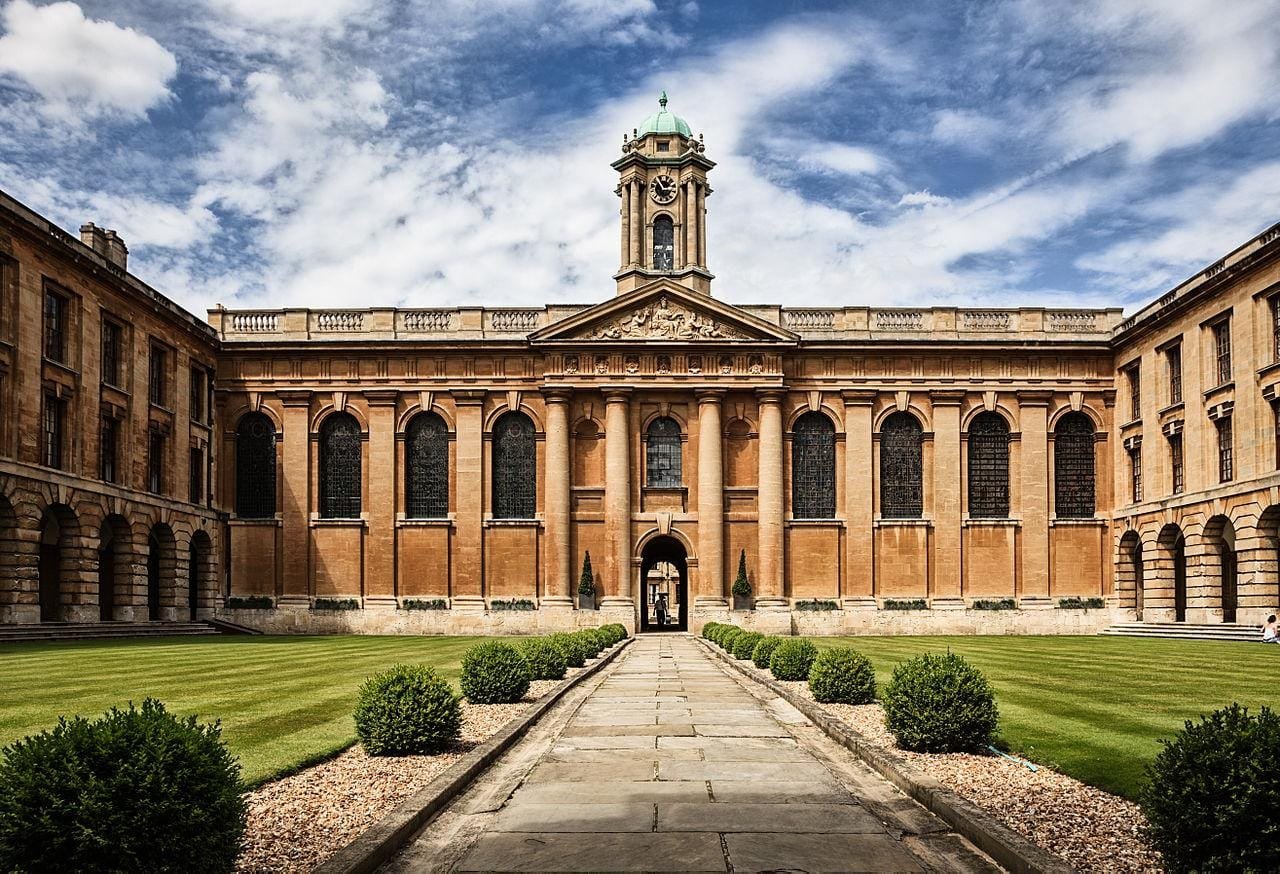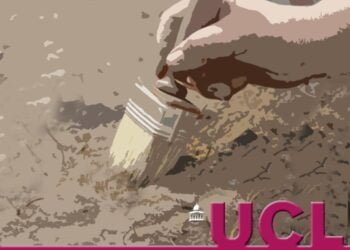Archeology is the scientific study of the material remains of past human life and activities, and studies human history over thousands of years.
If you’re enthralled by human evolution and biology, ancient culture, the emergence of the early civilisations, ancient languages, or how humans interact with our heritage and environment, a degree in archaeology may be ideal.
Here is the best universities for people who want to study archaeology courses (according to the QS World University Rankings 2022):

1. University of Cambridge
Cambridge, United Kingdom
Score: 98,4
The Department of Archaeology at Cambridge is one of the oldest in the world and also one of the youngest, largest and most vibrant in its current expanded form.
The Department, includes several additional individually renowned institutions. The McDonald Institute for Archaeological Research is an engine for new thinking, the hub for all postdoctoral researchers in archaeology and adjacent fields at Cambridge, and a center for attracting large-scale external research funding.
The Department also hosts the new Cambridge Heritage Research Centre. The Cambridge Archaeological Unit has had an immense influence on field archaeology nationally and internationally. The Duckworth Collection contains one of the largest collections of human remains in the UK.
2. University of Oxford
Oxford, United Kingdom
Score: 97.6
Oxford’s School of Archaeology is a lively and diverse community of archaeologists. Their work takes in the full scope of human history, from early hunter-gatherers through to the origins of agriculture, the classical and medieval worlds, and the ‘contemporary past’, as well as the environmental settings in which they existed. They work in just about every inhabited part of the world, and using the full range of theories, methods and techniques available to archaeologists.
The School of Archaeology was established in 2000, as the successor to the Committee for Archaeology. The School of Archaeology students and staff are based in three closely spaced locations in central Oxford, near the libraries, museums, laboratories, and other facilities of the University. The Institute of Archaeology is adjacent to the Ashmolean Museum and Sackler Library and is the main base for most students studying the postgraduate degrees in Archaeology, and the associated academic staff.
3. UCL
London, United Kingdom
Score: 96
The UCL Institute of Archaeology is one of the largest centres for archaeology, cultural heritage and museum studies in Britain. Founded in 1937, its staff and students actively pursue research on a global scale in the archaeological sciences, heritage studies and world archaeology.
The Institute offers Undergraduate, Graduate Taught and Graduate Research Programmes to UK/EU and overseas students. Opportunities are also available to members of the public to take courses at the Institute and to affiliate students wishing to spend some time at the Institute during their own degree programmes.
4. Harvard University
Cambridge, United States
Score: 91.5
Harvard is a university in Cambridge, Massachusetts. Founded in 1636 as Harvard College and named for its first benefactor, the Puritan clergyman John Harvard, it is the oldest institution of higher learning in the United States and among the most prestigious in the world.
The field of classical archaeology is understood to cover Aegean, Greek, Etruscan, and Roman art and archaeology. Harvard students may also work on a cross-departmental basis in related fields such as Egyptian, Near Eastern, Anatolian, Byzantine, Punic, and other areas of European art and archaeology.
5. University of California, Berkeley (UCB)
Berkeley, United States
Score: 90.8
The University of California, Berkeley is a public land-grant research university in Berkeley, California. Established in 1868 as the University of California, it is the state’s first land-grant university and the first campus of the University of California system.
The Department of Anthropology at Berkeley, founded by Alfred Kroeber, student of Franz Boas, has an illustrious history extending back more than 100 years. It has consistently been a leader in the discipline at large, and on the cutting edge theoretically and methodologically in each of the formal subdisciplines (social cultural, archaeology, biological, linguistics) and is one of the birthplaces of the field of Medical Anthropology.
6. Stanford University
Stanford, United States
Score: 90.5
Stanford University, is a private research university located in the census-designated place of Stanford, California. The campus occupies 3,310 hectares, among the largest in the United States. Stanford was founded in 1885 by Leland and Jane Stanford in memory of their only child, Leland Stanford Jr., who had died of typhoid fever at age 15 the previous year.
Stanford’s Archaeology Program provides students with an interdisciplinary approach to the material remains of past societies, drawing in equal parts on the humanities, social sciences, and natural sciences. The mission of the Archaeology program is to provide students with a rigorous introduction to the analysis of the material culture of past societies, drawing on the questions and methods of the humanities, social sciences, and natural sciences. Students in the major learn to relate these analyses to the practice of archaeology in the contemporary world.
7. Leiden University
Leiden, Netherlands
Score: 89.8
Leiden University is a public research university in Leiden, Netherlands. The University was founded as a Protestant university in1575 and is one of the leading international research universities in Europe. The University has seven faculties and a campus in both Leiden and The Hague.
The Faculty of Archaeology at Leiden is the leading academic institute for Archaeology in the Netherlands, and one of the largest in the world. The Faculty has more than 170 staff (around 50 permanent) and about 500 students (300 BA students and 200 (research) MA students). The Faculty also boasts around 130 PhD students and 40 post-doc.
8. Durham University
Durham, United Kingdom
Score: 89.5
Durham University is a collegiate public research university in Durham, England, founded by an Act of Parliament in 1832 and incorporated by royal charter in 1837.
Archaeology has been taught and studied at Durham University since 1931. Throughout the years, the department has grown to become what it is today: one of the largest departments in the world and a leading centre for the study of archaeology.
9. University of California, Los Angeles (UCLA)
Los Angeles, United States
Score: 88.8
The University of California, Los Angeles is a public land-grant research university in Los Angeles, California. UCLA’s academic roots were established in 1882.
The UCLA Interdepartmental Archaeology Graduate Program (AP) integrates archaeological faculty throughout the university for the training of graduate students who wish to pursue interdisciplinary research. The Cotsen Institute of Archaeology at UCLA is a premier research organization dedicated to the creation, dissemination, and conservation of archaeological knowledge and heritage. The Cotsen Institute is home to both the Interdepartmental Archaeology Program and the UCLA/Getty Program in Archaeological and Ethnographic Conservation. It provides a forum for innovative faculty research, graduate education, and public programs at UCLA in an effort to positively impact the academic, local and global communities. The Cotsen Institute is at the forefront of archaeological research, education, conservation and publication and is an active contributor to interdisciplinary research at UCLA.
10. Sapienza University of Rome
Rome, Italy
Score: 88.1
The Sapienza University of Rome, is a public research university located in Rome, Italy. It is one of the largest European universities by enrollments and one of the oldest in history, founded in 1303.
Sapienza Graduates can aspire to be future researchers with solid theoretical and practical training in archaeological disciplines. The acquired knowledge and competencies will allow the graduates to be employed as professional archaeologists or cultural experts.





















